Humans depend on living soil resources for their nutrition, recreation, and health needs. Yet, the current and future response of global soil biodiversity to human activities and the consequences for ecosystems and their essential functions remains unknown. Implementing operational and sustained programs to detect changes to soil biodiversity and ecosystem functioning as a result of human activities is critical to understanding and managing impacts on natural capital and ecosystem services.
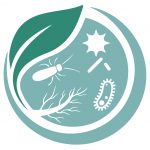 Constituted as a global Soil Biodiversity Observation Network (Soil BON), this group is working in partnership with the Global Soil Biodiversity Initiative (GSBI) and other global and regional partners to make available the soil biological and ecosystem observations needed to ensure living soil resources are sustainably conserved and managed and can support essential human needs.
Constituted as a global Soil Biodiversity Observation Network (Soil BON), this group is working in partnership with the Global Soil Biodiversity Initiative (GSBI) and other global and regional partners to make available the soil biological and ecosystem observations needed to ensure living soil resources are sustainably conserved and managed and can support essential human needs.
Soil BON partners represent a range of stakeholders, including researchers, educators, and policy advisors from academic, governmental, and private sectors. The goal is to further connect multi-national partners and initiatives in a worldwide effort to understand soil biodiversity, document how it is changing, how these changes affect people who rely on soil living resources for their well-being and livelihoods, and how a sustainable use of ecosystems can safeguard soil biodiversity.
Soil BON supports the development of a global community for the observation, understanding, and prediction of soil biodiversity, being a forum to network groups to advance methods for observing soil biodiversity including integration of information across spatial, temporal and taxonomic scales. This includes addressing capacity building needs from observations to informatics, helping to integrate existing and new field data following agreed international standards.
About Soil BONCo-Leads
 Carlos Guerra University of Coimbra |
 Nico Eisenhauer German Centre for Integrative Biodiversity Research (iDiv) |
Coordinators
 Monica Farfan Monica FarfanGerman Centre for Integrative Biodiversity Research (iDiv) |
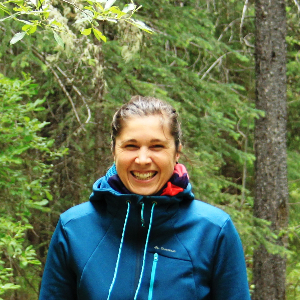 Lise Thouvenot German Centre for Integrative Biodiversity Research (iDiv) |
| Interested to join? Register and make sure to check Soil BON in you user profile. |
Key objectives
The Soil Biodiversity Observation Network (SoilBON) investigates spatial and temporal responses of soil biodiversity and function to global change worldwide.
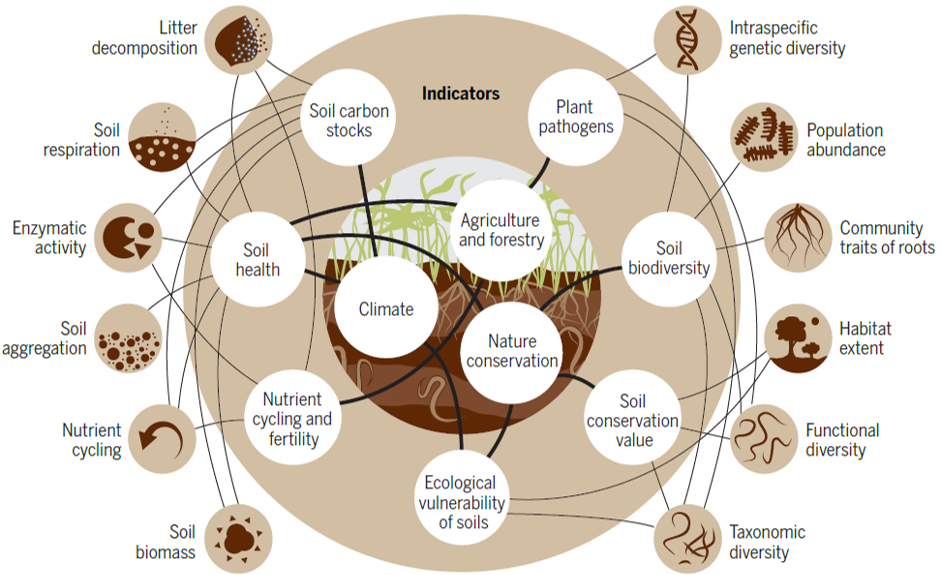
In the context of Soil BON, we monitor different variables, such as:
- Root traits
- Enzyme activity
- Nitrogen mineralization process
- Microbial respiration and biomass
- Total soil carbon and nitrogen content as well as soil available nitrogen and phosphorus
- Lignin degradation
- Soil trace element analysis
- Microplastic analysis
- Phospholipid fatty acid (PLFA) analysis
- Soil chlorophyll analysis
- DNA sequencing of soil bacteria, virus, fungi, protists, nematodes and small invertebrates
- Trophic group identification of soil nematodes
SoilBON aims to monitor soil biodiversity and soil ecosystem functions and their change over time in nature conservation, and non-conservation areas. To do so, we provide standardized sampling kits to collect soil of each sites. Sites are sampled every 3 years. The first field campaign took place in 2022, and sites will be re-sampled in 2025 and 2028.
In the last Soil BON sampling campaign, 523 sites have been sampled.
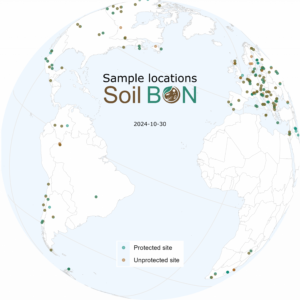
Data analysis
Data collected within Soil BON can be found in the Soil BON database (see Data Products) or requested via E-mail (see Contact).
Participation
Soil BON is always welcoming new partners interested in joining the sampling effort, collaborating for additional laboratory analysis, or investigating the data. Please register as a member and contact us using the email addresses provided in the contact section below.
Data collection
Papers
Mujica MI, Guillermo Bueno C, Duchicela J, and Marín C. 2019. “Strengthening mycorrhizal research in South America”. New Phytologist. 224 (2): 563-567. Download as PDF | https://doi.org/10.1111/nph.16105
Eisenhauer N, A Bonn, and A Guerra C. 2019. “Recognizing the quiet extinction of invertebrates”. Nature Communications. 10 (1). Download as PDF | https://doi.org/10.1038/s41467-018-07916-1
Eisenhauer N, Guerra CA. 2019. Global maps of soil-dwelling nematode worms. Nature. Download as PDF | https://doi.org/10.1038/d41586-019-02197-0
Cameron E, Martins I, Lavelle P, Mathieu J, Tedersoo L, Bharam M, Gottschall F, Guerra C, Hines J, Patoine G, Siebert J, Winter M, Cesarz S, Ferlian O, Kreft H, Lovejoy T, Montanarella L, Orgiazzi A, Pereira H, Phillips H, Settele J, Wall D, Eisenhauer N. 2019. Global mismatches in aboveground and belowground biodiversity. Conservation Biology 1–16. Download as PDF | https://doi.org/10.1111/cobi.13311
Cameron EK, Martins IS, Lavelle P, Mathieu J, Tedersoo L 2, Gottschall F, Guerra CA, Hines J, Patoine G, Siebert J 3, Winter M, Cesarz S, Delgado-Baquerizo M, Ferlian O, Fierer N, Kreft H, Lovejoy TE, Montanarella L, Orgiazzi A 5, Pereira HM, Phillips HRP, Settele J, Wall DH, Eisenhauer N. 2018. Global gaps in soil biodiversity data. Nature Ecology & Evolution 6–7. Email me a PDF | https://doi.org/10.1038/s41559-018-0573-8

Richard Bardgett
University of Manchester

Antonis Chatzinotas
Helmholtz Centre for Environmental Research Leipzig
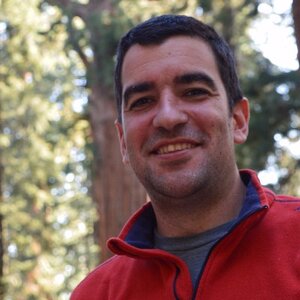
Manuel Delgado Baquerizo
Universidad Pablo de Olavide

Ika Djukic
Swiss Federal Institute for Forest
Snow and Landscape Research
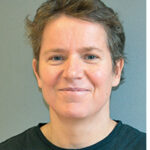
Barbara Kitzler
Federal Research and Training Centre for Forests
Natural Hazards and Landscape

Fernando T. Maestre
University of Alicante, Spain
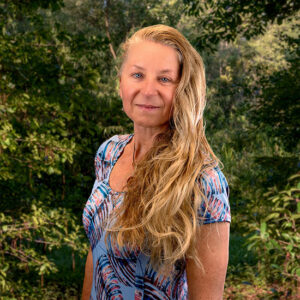
Dorota Porazinska
University of Florida
Nematode Ecology and Soil Microbiomes

Thomas Reitz
Helmholtz Centre for Environmental Research Halle

Yong Sik Ok
Korea University
Division of Environmental Science and Ecological Engineering

Brajesh Singh
Western Sydney University
Soil Crop Microbiome Group

Leho Tedersoo
University of Tartu

Diana Wall
Colorado State University
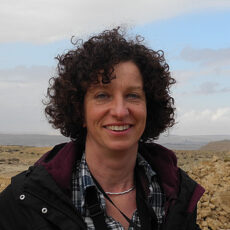
Bettina Weber
University of Graz
Functional Diversity and Ecology

Alexandra Weigelt
Leipzig University
For specific inquiries, please direct your request to the appropriate contact:
- General Questions and Requests: For general information or if you’re interested in joining our project, please contact us at info@soilbon.org
- Data-Related Questions and Requests: If you have any questions about data or need access to our data portal, reach out to data@soilbon.org. You can explore our publicly available datasets through our data portal.
- Lab Collaboration and Analysis Requests: For lab-related inquiries, including partnership opportunities or requests specific to lab analysis, please contact us at lab@soilbon.org. Lab partners and potential collaborators are welcome!
Our team will ensure your request is routed to the appropriate team members for a timely response.

